

Te Aka Tauira
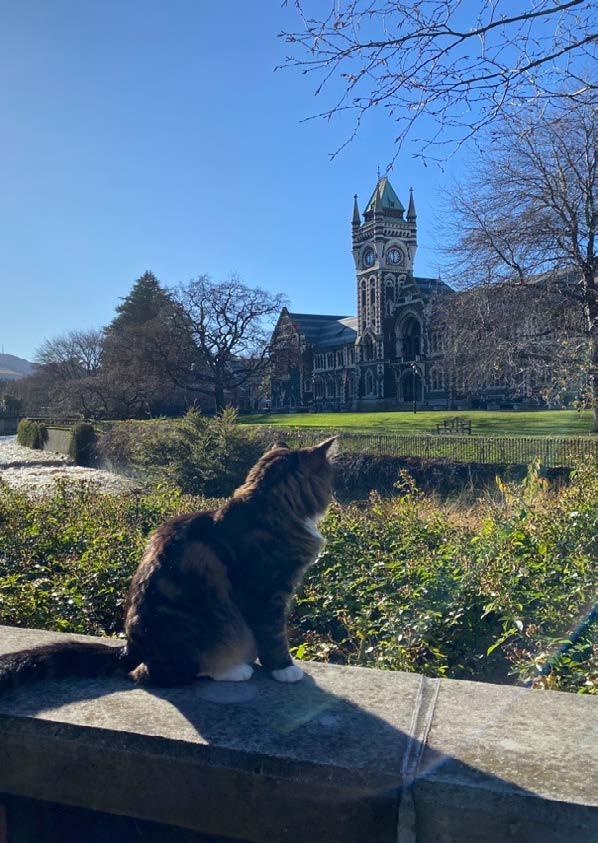
Find a flat without losing your mind, all about ASTR101, the Bulletin photo comp returns, & more!
This month:
Drawing on life: An exhibition of courage and skill



Plus:
- A deep dive into OUSA Student Support
- A roundup of Otago news
- A look at what’s coming up in July
ASTR101: An epic introduction to astronomy
Game over: US footballers farewell dream team
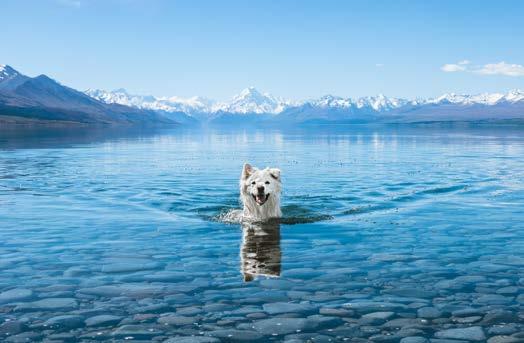
Bulletin photo comp back
Charge your phone, break out your tripod ... the Bulletin Photo Competition is on its way!
All University tauira and kaimahi are eligible to enter the annual competition, which opens 15 July and closes 23 August.
Part of the judging panel, Eugene Yeo from Otago’s social media team, says the calibre of winners from the past few years has set the bar high.
“I’m excited to see all the unique perspectives people will bring to this year’s competition.
“Their creativity and ability to capture a visually compelling narrative, or a striking moment frozen in time, will be what sets their submission apart.”
• Find out more about how to enter the Bulletin Photo Competition here

Above: In second place was Senior Administrator Simon Roberts, from Student Administration, who caught puffins in action at Lunga, one of the Treshnish Isles in Scotland.
Above: Winner of the 2023 Bulletin Photo Competition was Research Fellow Dr Teodora Georgescu for her photo of Samoyed-Golden Retriever cross Elsa. Entries for the 2024 competition will open on July 15. Photo: @floofyfriday on Instagram
A show of courage and skill
Kōrero by Laura Hewson
Something that started as a way of “decompressing from life” has turned into so much more for Otago tauira Holly Aitchison.
Holly, who is in the second year of a Bachelor of Arts majoring in sociology, celebrated the launch of her first solo art exhibition –Telos – at OLGA Gallery in June.
“Telos is an Ancient Greek word that means end goal, or completion – the final goal of art.”
The name is appropriate considering the journey Holly has been on to get to this point.
“When I was young, I studied design and visual arts at what is now SIT (Southern Institute of Technology) but I was a bit of a mess as a human and I just ended up floating around without much direction.
“I ended up teaching art to adults with intellectual disabilities and really loved it. But after 14 years I was pretty burnt out, so I began talks with a tutor at the Dunedin School of Art to fast-track a fine arts degree based on the work that I’d already done. This was at the beginning of 2020 so yeah, Covid-19 destroyed that plan.”
The resulting lockdowns ended up being a blessing as well though, she says.
“They made me realise that I didn’t want to approach art from

an intellectual perspective. Making work in my own time without any agenda behind it was the most free that I’ve ever felt and my practice has really grown from that freedom.”
Telos is a collection of large-scale drawings of animals that Holly created as a way to help express her emotions and process past trauma.
“I find that I can relate much better to animals so I’d be experiencing a huge feeling and an animal would pop into my head.
“The telos of this work was emotional expression, bringing what was inside out into the light, no matter how big and scary it is.”
Another big achievement for Holly – and one that’s proven to not be at all scary – was enrolling at university for the first time at
the age of 44.
“Honestly, I’m telling everyone to consider being a mature student. I love it. After working full time for over 20 years, actually physically going to lectures and being on campus is really enjoyable. It may seem weird, but I like working in the library surrounded by everyone else on their own buzz.”
Holly knew from the beginning of the enrolment process that sociology was right for her.
“I’d spent many years listening to a podcast called Faculty of Horror, which is two Canadian sociologists talking about horror films. It’s amazing and I love it. I’ve also taken a couple of politics papers and really enjoyed them so now, all going well, I’ll major in both sociology and politics.”
Full story
Sociology student Holly Aitchison celebrates the opening night of her first solo art exhibition, Telos, at OLGA Gallery.

Scholarships celebrated
Kōrero by Keilah Fox
The number of Pacific students offered scholarships to attend Otago has increased four-fold during the past five years. Almost 300 of this year’s recipients were recognised at a celebratory dinner recently.
It was the first time the event has been run since 2019 when the Pacific Islands Centre was under the leadership of the now Head of Pacific Engagement le Afioga ia Tofilau Nina Kirifi Alai.
In 2017, 73 Pacific students were offered University of Otago scholarships, which climbed to 140 in 2019 and to more than 300 this year.
Ecology and geography tauira Javara Clark was one of three students to receive the New Frontiers of Excellence scholarship this year.
Javara came to Otago wanting to make a difference. He felt his degree needed to “connect to our land to provide a better future for us all” and saw it as a way to bring about change.
He applied for Otago at the end of 2023 while completing Year 12 at Otago Boys High School

after realising he had obtained the necessary credits, and said receiving his scholarship gave him reassurance he was ready for university.
Learning he was the recipient of the New Frontiers of Excellence scholarship was welcome news to Javara, who commutes to campus from Taieri Mouth each day and is determined to fund his studies and leave university debt-free.
Javara is working towards a Master of Planning qualification, which will let him take up vocational positions overseas such as in the Solomon Islands and Kuwait.
Full story
Pacific students gathered recently to celebrate a record number of Pacific scholarships offered by the University of Otago.
Javara Clark received the New Frontiers of Excellence scholarship to pursue geography and ecology at the University.
Time to get lost in space
How old is the universe? What are stars made of? Does intelligent life exist out there? If you’ve ever pondered such things, then ASTR101: Introduction to Astronomy could be the paper for you. Laura Hewson talks with Professor Craig Rodger about space and stars, meteors and maths and why exactly he keeps a battleaxe in his office.
In the beginning there was gas, Professor Craig Rodger says. Hot gas and lots of it.
Also in the beginning, though not nearly so long ago, there was a summer school paper called PHSI170, which will be offered in semester two as ASTR101: Introduction to Astronomy.
The new-ish paper – taught by Craig and Associate Professor Jonathan Squire – will follow the same format as the summer school paper, delivering “tried, true and successful” content while allowing more time and space for contemplation.
There are a few reasons for changing the name of the paper.
“The fact that Otago actually had an astronomy paper was sometimes missed so this raises the paper’s visibility. Also, ASTR101 is quite different from most physics courses where we’re trying to teach things that are deeply fundamental and totally ingrained and accepted.
“Astronomy, in contrast, is an active research area where basic stuff keeps changing. We’re constantly tweaking the lecture material to be up-to date with what we currently understand about the universe. It’s exciting.”
Another big difference is that the maths requirements are much lower for ASTR101 than most physics papers, making it more appealing to a wider range of students, Craig says.
“Physics has a bad rap with a lot of students but this isn’t actually a course designed for physics students. I designed this paper to be accessible to people of different backgrounds.
“The humanities students can totally function with the level of maths that’s required and the
physics students are also pushed a bit by having to write essays, which they don’t tend to do.”
Fourth-year student CJ Barnes, who is doing a Bachelor of Science (Hons) in physics, took ASTR101 when it was a summer school paper.
“I’d never taken a summer school paper before, but I took this one because I’ve always had an interest in astronomy.”
As a physics student, CJ has written three essays in his entire time at Otago and two were for this paper.
He enjoyed the process though and the range of topics made things easier as there was enough choice to appeal to the different students in the class.
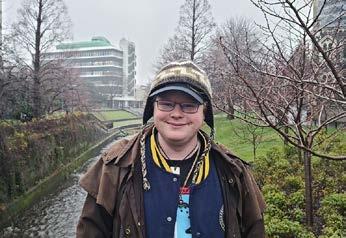
Fourth-year student CJ Barnes, who is doing a Bachelor of Science (Hons) in physics, took ASTR101 when it was a summer school paper.being offered as a semester two paper.

“I found the different models of the solar system and the life cycle of stars to be the most interesting parts of the course, however it’s all very interesting.
“It’s not a math-heavy course and it suits most people because it’s a standalone paper that can be slotted in to any degree. And both of the lecturers are incredibly friendly and want to help people succeed in the course, so if you do get stuck on something don’t be afraid to ask them.”
of ancient peoples. About a third of the course is on how we used to think the world or universe worked and that we were wrong, and this is how we know we were wrong, and this
of space and exploded over the city, Craig says.
One of the final topics covered is the search for extraterrestrial intelligence (SETI).
“ I quite like to lecture with a battle axe for when you kill stars.”
is how our thinking evolved. The course then turns to how we think things work now.”
There’s the life cycle of stars. Their creation, growth, middle age and ultimate demise.
So what should students expect when doing ASTR101? According to Craig, it starts off a bit like The Hitchhikers Guide to the Galaxy.
“Lecture one is basically, space is big. Let me tell you about how big space is. Lecture two is, the universe is old. Really old. Let’s talk about how old it is.
“And then we start talking about the astronomical knowledge
“I quite like to lecture with a battle axe for when you kill stars.”
The course also covers meteors in one of the tutorials, going from extreme events like the dinosaur killers to smaller but still “unfun” events like a few years ago in Cheylabinsk, Russia, where a rock came out
“We have to leave it open to interpretation because we have absolutely no evidence that there’s life outside planet Earth. Though there may be some evidence for Mars – it’s arguable. What we can talk about is how we can use our scientific understanding right now to quantify the probabilities and possibilities of how life might talk to us and how we might search for life on other planets.
“So we sort of start with deep history and ancient peoples and we end with the fate of the universe and aliens. It’s a lot of fun.”
• There’s still time to enrol for ASTR101. More information
Full story
Professor Craig Rodger is one of the lecturers for ASTR101: Introduction to Astronomy, which is now being offered as a semester two paper.
US footballers farewell dream team
Kōrero by Laura Hewson
There weren’t too many culture shocks for United States undergrad Emily Dunkel when she came to Otago in semester one, but there was something that threw her.
“I was really surprised to learn that rock paper scissors is paper scissors rock here. Hearing that for the first time was a shock,” she says.
Another difference? Soccer is called football, but that hasn’t been such a problem for Emily, who played for the Otago University Association Football Club’s women’s premier team during her semester at Otago.
“I have such a passion for soccer that I wanted to continue to play while I was away from home. Some of my school’s alumni played soccer while they studied abroad, and they recommended the Otago club.”
Emily is in her final year of a Bachelor of Science in biochemistry and molecular biology at Dickinson College in Pennsylvania. She came to Otago for semester one as part of the Study Abroad programme, which allows overseas students who don’t attend one of Otago’s Global Exchange partner organisations to still study here.
Giada Bambi, who has just finished her third year of a Bachelor of Science in psychology and neuroscience at Grinnell College in Iowa, was also here in semester one as part of the programme and she also seized the opportunity to play for the OUAFC women’s premier team.
“I thought playing football would be a great way to meet new people while also continuing to practice so that I’m best prepared for returning to play back home. I’m super grateful that it all worked out so well,” Giada says.
“The team has been doing really well this year, placing second in the local competition and advancing to the South Island League (SIL). They will

continue through that journey after I head home and I’m keeping my fingers crossed for them. I’m sure they’ll crush it.”
Head coach of the OUAFC women’s premier team Hamish Philip says Giada and Emily played a big part in the team doing so well.
“Each season we have players from all around the world join us and we welcome them with open arms. Giada and Emily both made a huge impact to the team and club. They brought positive energy and absolute class on and off the field. They are a coach’s dream.”
There are eight games left in the SIL, with the team next playing Coastal Spirit in Christchurch.
“Even with both Giada and Emily gone, the lasting effects on the remaining players will live for years. They were an absolute blast to have around, and we wish they could have stayed longer,” Hamish says.
“They’ve set a standard for all the players, and we wish them all the best. We also look forward to meeting the next international players who want to join us.”
Giada and Emily can both attest to the warm wel-
United States students Emily Dunkel, left, and Giada Bambi with their Otago University Association Football Club coach Hamish Philip.
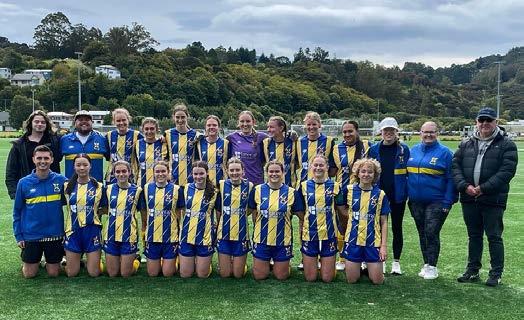
come they received from the club and their teammates.
“This team is one of the kindest, most welcoming teams I’ve ever been a part of,” Giada says.
“My coach Hamish, and all of my teammates made a great effort to make sure I felt welcomed and to create such a goofy and sweet environment for a small sense of community away from home.”
“Going on exchange and picking this programme are definitely some of the best decisions I’ve ever made.”
Emily says being able to juggle her interests with study was a definite positive.
“ This team is one of the kindest, most welcoming teams I’ve ever been a part of.” – Giada
The team is made up of some of the friendliest, funniest people she knows, Emily says.
“They shared some New Zealand insights each practice and we had a lot of fun bonding events. The coaching staff as well were so accommodating. They allowed us to have the flexibility to travel and experience New Zealand while still playing soccer.”
As Giada and Emily prepare to return home to the United States, both women say their experience here has been overwhelmingly positive.
“Exchange has been an amazing experience filled with heaps of memories of seeing so many new people, places, and things,” Giada says.
“There is just so much to do and see in New Zealand and on campus. I felt that it was fairly easy to find a school-life balance here allowing me to travel, play soccer, enjoy the social culture and still focus on school.”
During her time at Otago, Emily also played club frisbee and enjoyed morning dips at St Clair Beach.
“My favourite part though was the tramping [hiking]. There were so many beautiful places that I was able to travel to.”
And in true Dunedin student style, she spent some time ‘under the roof’ at the city’s stadium.
“I really enjoyed going to Highlanders games. I found a new love for rugby!”
• More about the Study Abroad programme
The mighty OUAFC women’s premier team placed second in the South Island Qualifying League and has now progressed to the South Island League.
DEEP DIVE: STUDENT SERVICES
OUSA Student Support
This month we take a closer look at OUSA Student Support and learn how they can help you find the right flat in the right way with the right people.a Hewson finds out.
Hewson
Don’t panic! That’s the message OUSA Student Support manager Dwaine Tait has for students rushing to secure their 2025 flat.
“Every year we offer a series of ‘flatting talks’ to all of the colleges and one of our messages is to encourage students not to sign up for a flat too soon.”
And there’s a very good reason for their message.
“The majority of the students sign a joint fixed-term tenancy agreement, so they’ll therefore be held jointly and severally liable for the property they’re renting and the terms and conditions of the contract they sign.
“We explain that it’s in the best interest of all to do their best to know who they’ll be signing with. In other words, if you sign with people you’ve just met in your college, it may turn out not to be a good fit.”
First-year student Hannah Jones says the stress of finding a flat has been a hot topic at UniCol, and her friends at other colleges are experiencing the same thing.
“There’s a sense of urgency to get flatmates and a flat sorted as soon as possible. The college put out a message saying that they won’t be giving out recommen-

dation letters till semester two, which I suppose means they had a large number of people asking for them.
“I feel that hearing about everyone else who’ve signed puts the pressure on more, and it really feels like everyone else is sorted for next year – even if that isn’t the case. The general advice going around among students is that you need to sign early otherwise you’ll end up without one.”
Hannah – who’s in her first year of a Bachelor of Science majoring in microbiology – plans to go flatting next year but thinks rushing in isn’t a good idea.
“I’m personally not too worried
about signing for a flat too quickly as I know that they’re available all year round. I’m more concerned about finding flatmates.
“I do know people who’ve already signed. They’ve generally had good experiences, but I heard of a group who signed particularly early in the year and had a falling out with one of the girls and ended up stuck.”
Hannah’s plan is to wait till semester two before deciding on a group to flat with, then to start looking for the flat.
“I’m a bit concerned I’ll end up in a stereotypical damp, cold Dunedin flat and I’m also concerned about the price of rent, which is
The OUSA Student Support staff come from a variety of backgrounds and are there to help with everything from flatting to financial hardship, wellbeing to LGBTTQIA+ support.
Kōrero by Laura
another reason why people believe they have to sign early.”
The talk OUSA Student Support gave in her college was useful, she says.
“They gave tips on what to look for when flat hunting and reassured me that if I do wait till second semester, I’ll get equal opportunity to get a good flat as those who decided to sign early.
“I also know I can come to them with my tenancy agreement to look over before I sign, which I almost definitely will do.”
Dwaine says flatting in Dunedin can sometimes be precarious to navigate, especially for students doing it for the first time.
“They’re not always aware of their tenancy rights and can find themselves in any number of situations.
“We generally offer guidance
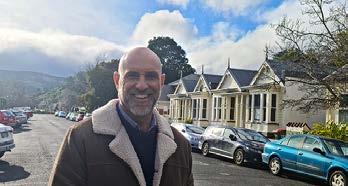
around tenancy rights, mediations, contractual guidance, flatting best practices, guidance for tenancy tribunal and financial support options.”
In recent years there have also been situations related to flat initiations.
“I just want to be clear that we don’t condone any situation
Wise words from OUSA
When to look...
Landlords may ask you to sign on for the following year or start advertising early. However, tenants have between 28-90 days from the end of the fixed term to confirm their intentions for the following tenancy. Check your contract.
There are a lot of flats out there, so don’t rush. Starting to look in August will be just fine. Shop around and find a flat that meets your needs.
Consider the people you’re signing with. While living with friends from first year might seem great now, relationships can change and removing a flatmate after they sign on is difficult.
where any student is placed in a vulnerable position that would potentially cause undue harm or suffering. Having said that, we will always extend our support to all students regardless of any situation they have found themselves in.”
Full story
OUSA Student Support Hub
What to look for...
• Is it warm and dry? If not, then why not?
• Are the windows double glazed?
• Is there any mould anywhere?
• What’s the water pressure like?
• Is it noisy?
• Are the rooms all the same layout/size? Would you stagger the rent because of this?
• Is there enough storage space?
• Is there nearby parking if you’ve got a car?
• Does it come furnished (even partially)?
• Have you checked out your potential property manager/landlord?i
OUSA Student Support manager Dwaine Tait says there’s no need for students to race into signing up for a flat and that they’re always welcome to come to the support hub with any questions or concerns.
There’s more where that came from:

Acccessibility tool opening digital doors
Visitors to the Otago website can now access UserWay, an AI tool designed to make the website more user-friendly for people with disabilities.
Ōtākou Whakaihu Waka, is currently the only university in Aotearoa to roll out UserWay.
Otago’s Disability Information and Support Manager Melissa Lethaby is thrilled with the development.
“By integrating this tool, we are committing to providing an equitable online experience that adheres to global accessibility standards, making our content and services available to a broader audience,” she says.
Full story
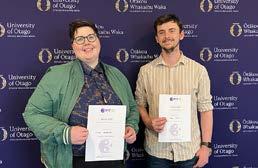
UOC students fly flag for thesis competition
Seven eager Otago Masters and PhD students lined up in the Rolleston Theatre for this year’s Three Minute Thesis (3MT) Christchurch campus heats in late June.
Now in its 16th year, the 3MT competition was established by the University of Queensland and has since been adopted by 900 universities in 35 countries worldwide.
Pictured above, Master of Public Health student Charlotte Harrison, from the Department of Population Health, was judged winner of UOC’s master’s student heat entries, with Department of Pathology and Biomedical Science student Ben Topham taking out the PhD student heat winner’s prize.
Full story
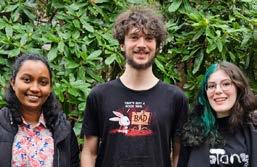
Botany students win state-of-art machine
Two postgraduate students have won the Department of Botany “a very fancy incubator” after entering an Australia and New-Zealand-wide competition.
Jessica Paull and Sajini Dissanayake’s entry into the ThermoFisher Scientific competition has secured the Department a $13,000 thermal cycler – a small but mighty machine that helps researchers unlock and amplify DNA and RNA.
Sajini says the new thermocycler will enhance her research into plankton while Jessica says precision is key in her research into the microbiomes of moss.

New Vice-Chancellor welcomed to role
Otago’s new Vice-Chancellor started this week.
Grant Robertson – former Finance Minister, Otago alumni, OUSA president, and proud Dunedinite –takes over the job from Professor Helen Nicholson, who’s been in an acting role since last year.
While he’ll be spending a few weeks “getting my feet under the desk”, he’s keen to get out and about meeting tauira .
“I’m looking forward to spending as much time as I can with students. To me that’s an important part of the job … the university only exists because of, and for, the students.”
Check out footage from the pōwhiri
What’s on in July?
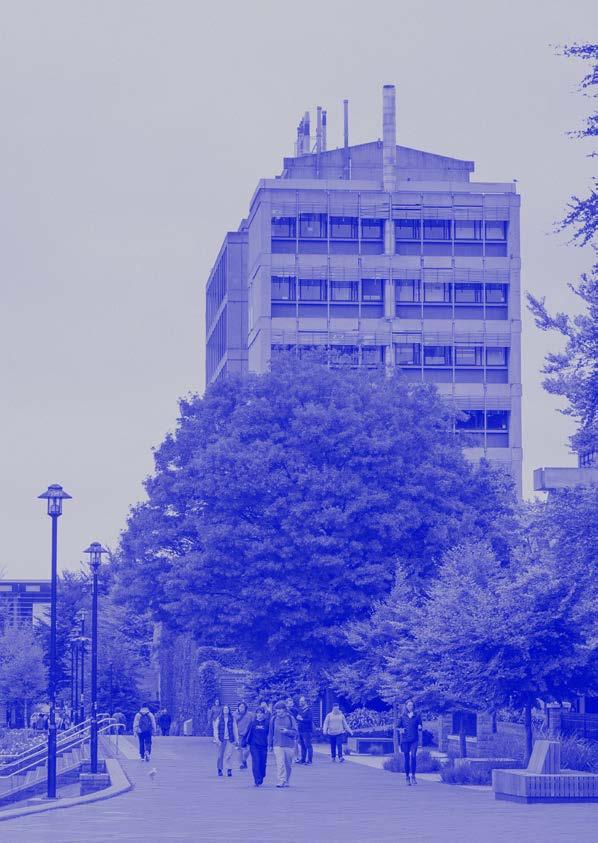
Have your say on recording of lectures
The policy that outlines the rules around recording of lectures is under review. Your input is being sought on the potential pros and cons of introducing a mandate that all lectures be recorded. Submissions close on Monday, 29 July. More information
Provide feedback on the benefits
Provide feedback on the problems
